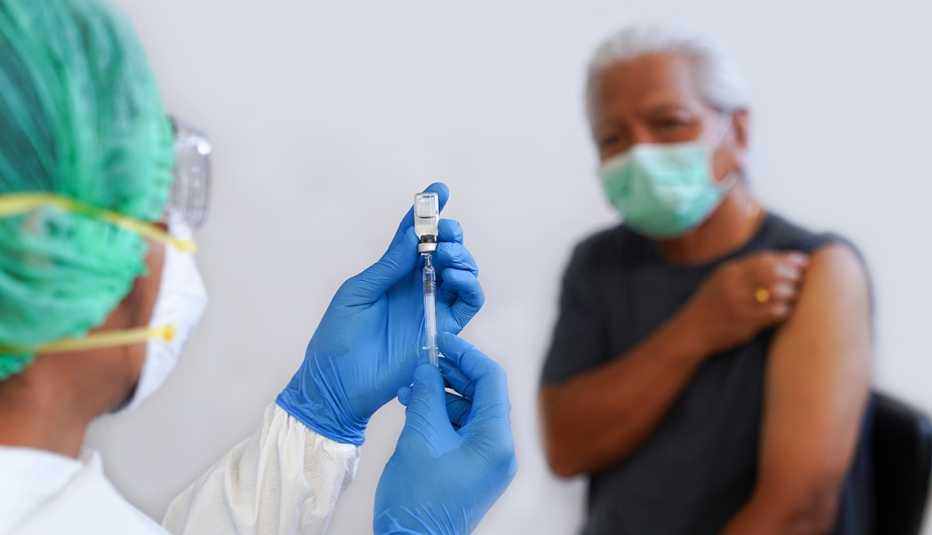AARP Hearing Center


The Department of Veterans Affairs (VA) is now offering a third-dose booster shot to certain groups of people with weakened immune systems who are already inoculated with the initial two doses of the Pfizer-BioNTech COVID-19 vaccine.
Veterans, spouses, caregivers and some dependents who have not yet received their primary doses remain eligible for inoculation.
For both groups, walk-in or scheduled appointments are available. Those who choose to walk in should check the walk-in hours at their preferred facility before leaving home. Note that there may be a wait time while staff prepares the vaccine.
Also, be aware that anyone who enters a VA facility is still required to wear a mask and complete its COVID-19 screening. Individuals who are fully vaccinated will be notified by VA staff if it is safe to remove their mask during their visit.
Who can get a COVID-19 booster shot at the VA?
Those eligible for a booster should have received their second dose of the Pfizer-BioNTech shot at least six months ago. Older veterans who receive care through the VA, along with its employees, will be prioritized first, followed by those:
- 65 and older and residents in long-term care settings
- 50 to 64 with underlying medical conditions
- 18 to 49 with underlying medical conditions
- 18 to 64 who are at increased risk for COVID-19 exposure and transmission because of their occupation or institutional setting, based on their individual benefits and risks
Veterans who receive care through the VA may receive both the COVID-19 and flu vaccine at the same time, per advice by the Centers for Disease Control and Prevention (CDC).
“These booster doses are an important step forward in the fight against COVID-19,” said VA secretary Denis McDonough. “With the authorization of the Pfizer-BioNTech booster for eligible individuals, VA can provide veterans an opportunity to maximize their protection, continuing our work to keep people safe and save lives during the COVID-19 pandemic.”
Who can get a COVID-19 vaccine at the VA?
The department is prioritizing the approximately 9.5 million veterans enrolled in the VA system, followed by:



































































More on Home and Family
Free Resources to Aid Veterans, Military, Their Families Amid COVID-19 Outbreak
Check out where you can find support for your health and financesHow Veterans Can Get Tested for COVID-19 With VA or Tricare
Non-urgent appointments being rescheduled to handle potential influx of coronavirus casesHow the Pandemic Changed Caregiving for a Veteran's Family
A father helps with his daughter's recovery from a traumatic brain injury